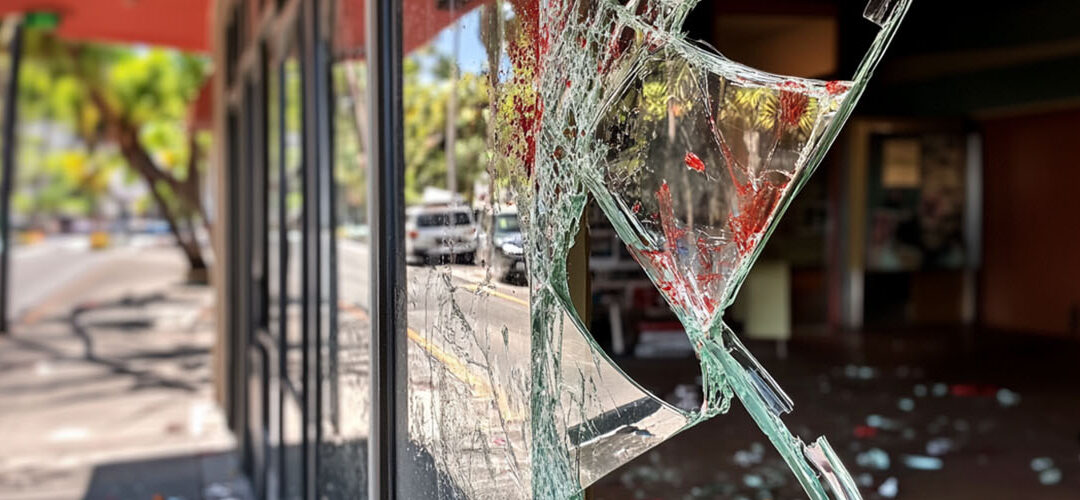A recent robbery at a business on Oahu has brought renewed attention to a critical, yet often overlooked, aspect of crime aftermath—biohazard cleanup. During the break-in, the intruders shattered a window to gain entry and sustained injuries in the process, leaving behind blood at the scene. While property damage and security concerns typically receive immediate attention, the biological risks introduced by bloodborne pathogens are equally urgent.
Blood cleanup, no matter how minimal it may appear, presents significant health hazards. Blood can carry infectious diseases that pose serious risks to anyone exposed without proper precautions. Without specialized training in bloodborne pathogen protocols, use of personal protective equipment (PPE), and a thorough understanding of contamination control, attempting to clean up such scenes can be extremely dangerous. Even the smallest amount of untreated blood can harbor serious long-term health threats.
Some of the most concerning bloodborne pathogens include:
- HIV/AIDS
The Human Immunodeficiency Virus (HIV) attacks the immune system, impairing the body’s ability to defend against infections. If left untreated, it can progress to Acquired Immunodeficiency Syndrome (AIDS), a potentially life-threatening condition. HIV is primarily spread through contact with infected blood and certain bodily fluids. - Hepatitis A
This viral liver infection is usually transmitted through ingestion of contaminated food or water but can also, in rare cases, spread through contact with infected blood. Hepatitis A causes liver inflammation and symptoms such as fatigue, nausea, abdominal discomfort, and jaundice. While it typically resolves without chronic complications, it can be highly contagious. - Hepatitis B
Hepatitis B is a severe liver infection caused by the hepatitis B virus (HBV). It is transmitted through exposure to infected blood or bodily fluids. The infection may be acute or chronic and can lead to cirrhosis, liver failure, or cancer. Fortunately, an effective vaccine is available to prevent HBV infection. - Hepatitis C
This liver infection is primarily spread through direct blood-to-blood contact. Hepatitis C often shows no early symptoms, making it difficult to detect until it becomes a chronic condition. If left untreated, it can result in significant liver damage. While there is no vaccine, highly effective antiviral treatments are available.
In the case of the Oahu robbery, the business owner is now responsible for ensuring the premises are safely and thoroughly decontaminated. Contrary to common assumptions, blood cleanup is not as simple as wiping down surfaces or sweeping up debris. Blood-contaminated materials—such as broken glass—must be treated as biohazardous waste and disposed of according to strict local, state, and federal regulations. Improper handling not only endangers health but may also result in legal consequences.
To protect public health and ensure regulatory compliance, business owners are strongly advised to engage licensed biohazard remediation professionals like Bio-X Hawaii. We are specialists who are trained in the safe handling of biological contaminants, follow rigorous decontamination procedures, and ensure that all biohazards are legally and responsibly disposed of.
No matter the size or severity of the blood spill, professional blood cleanup is essential. Proper remediation eliminates all biological threats, restores the space to a safe and usable condition, and provides peace of mind to business owners, staff, and the public.


